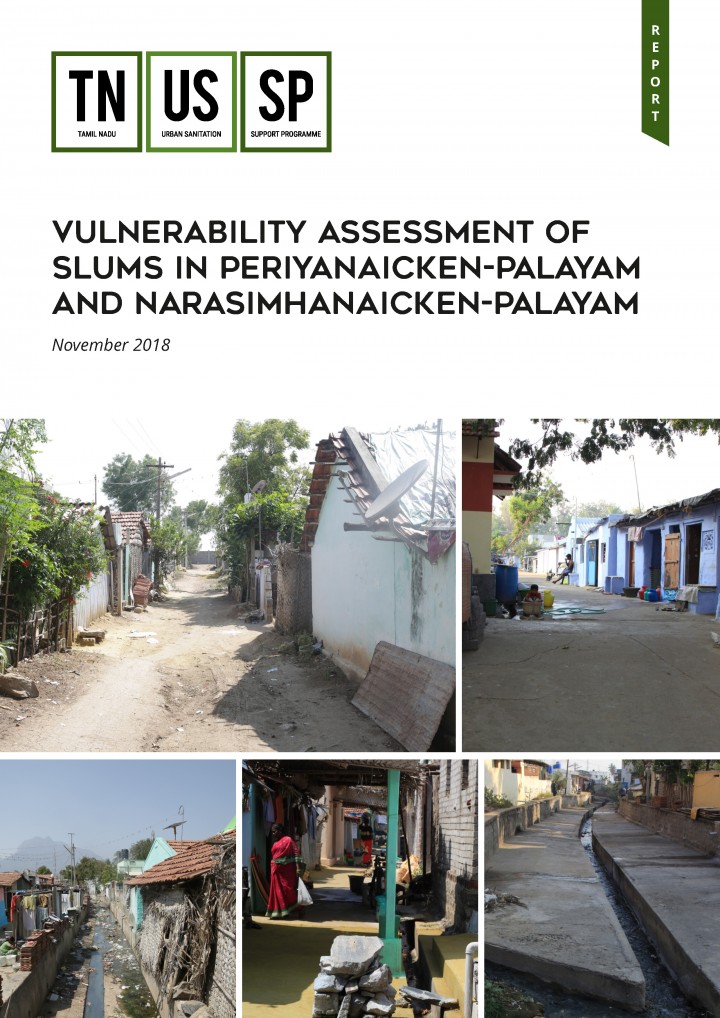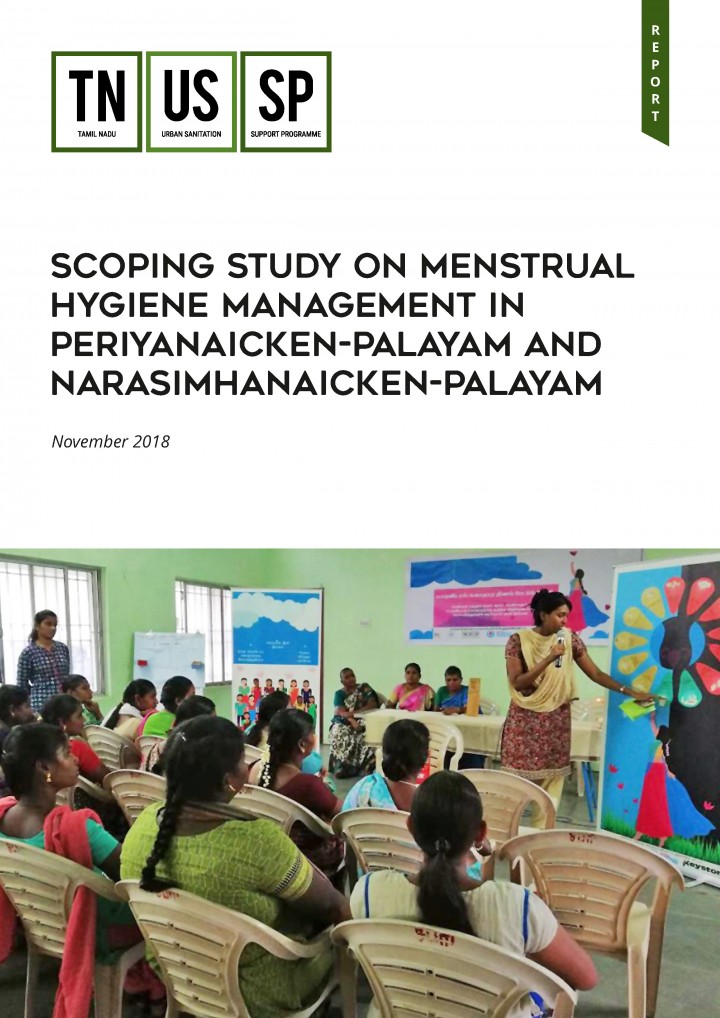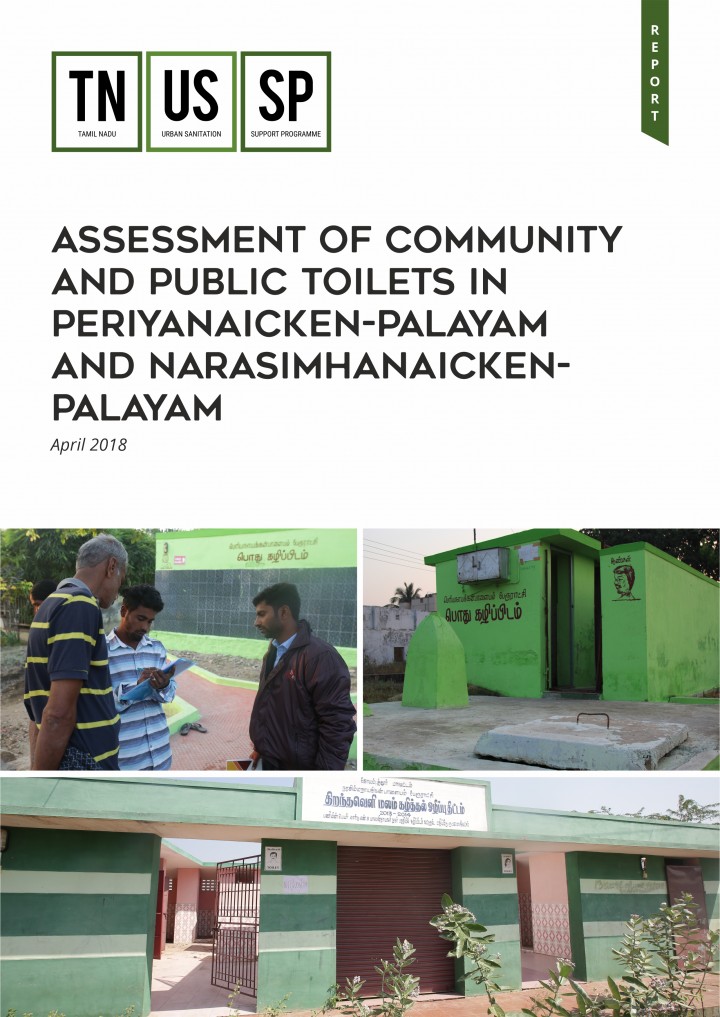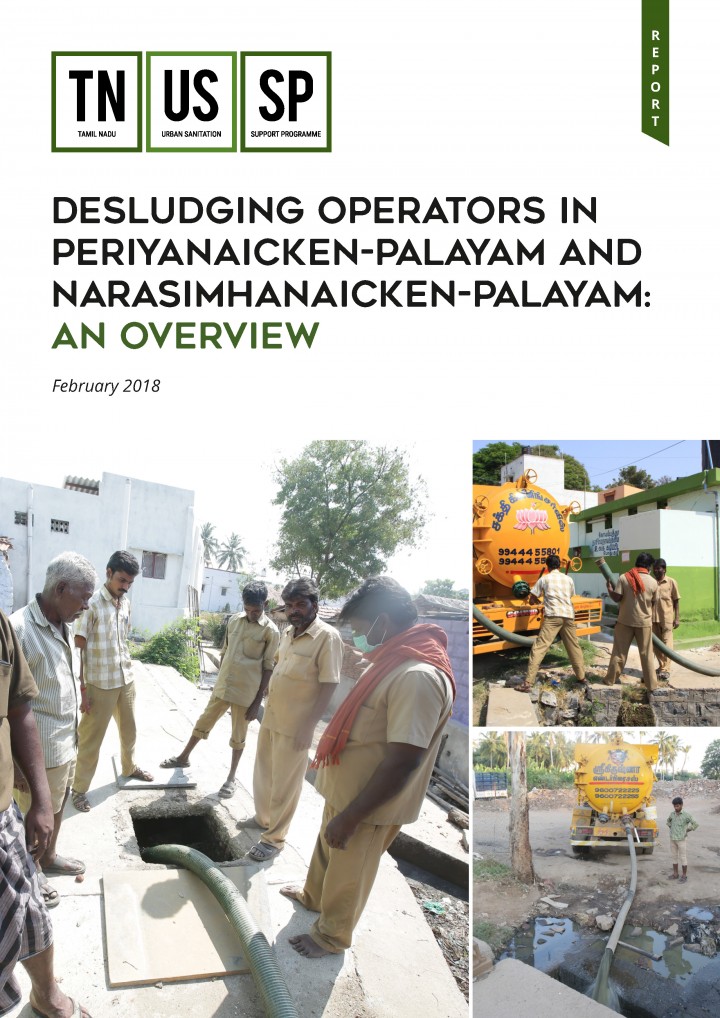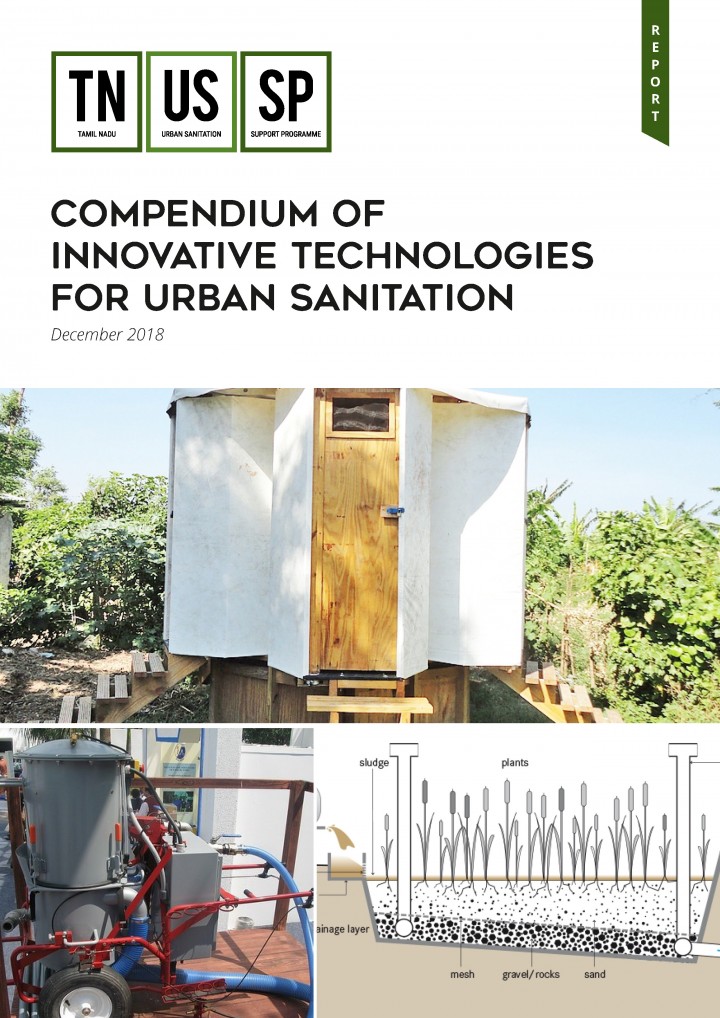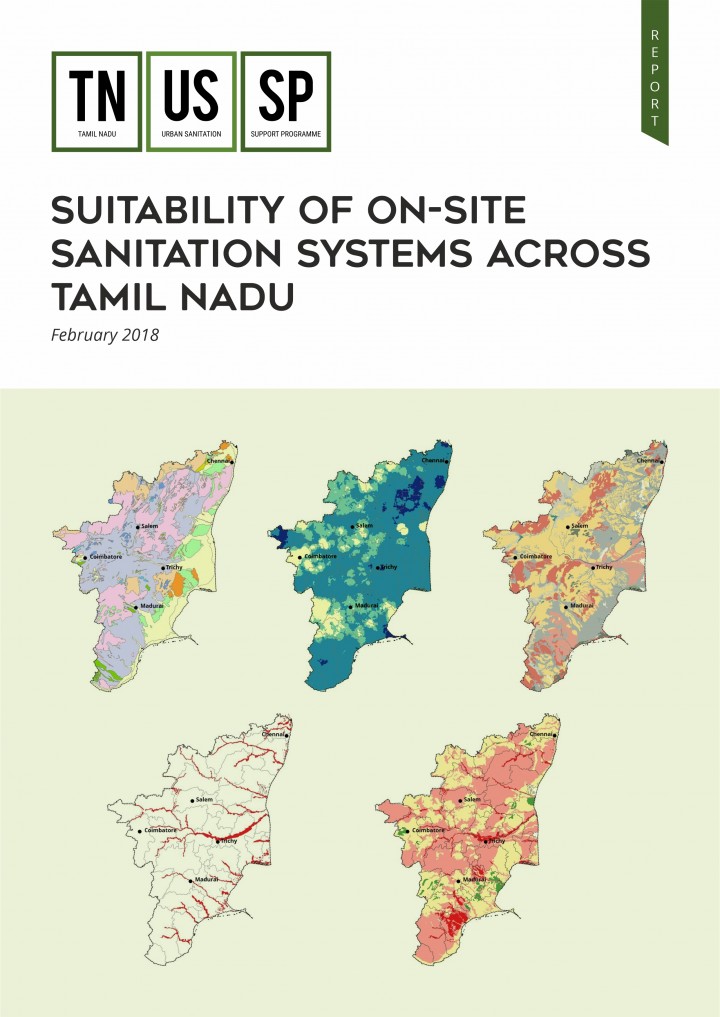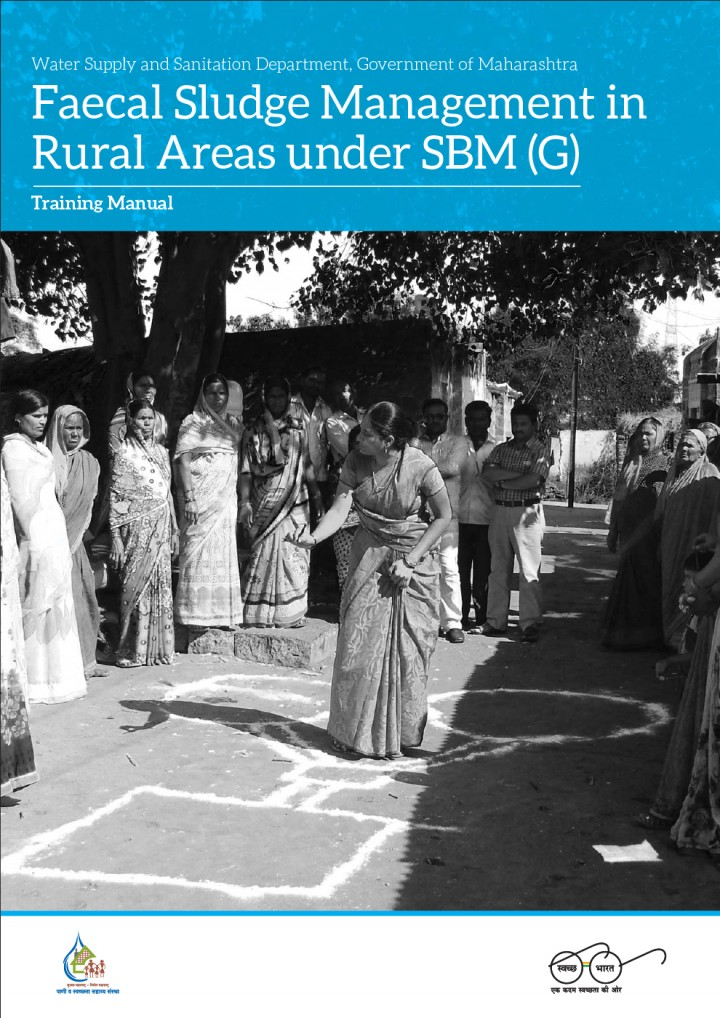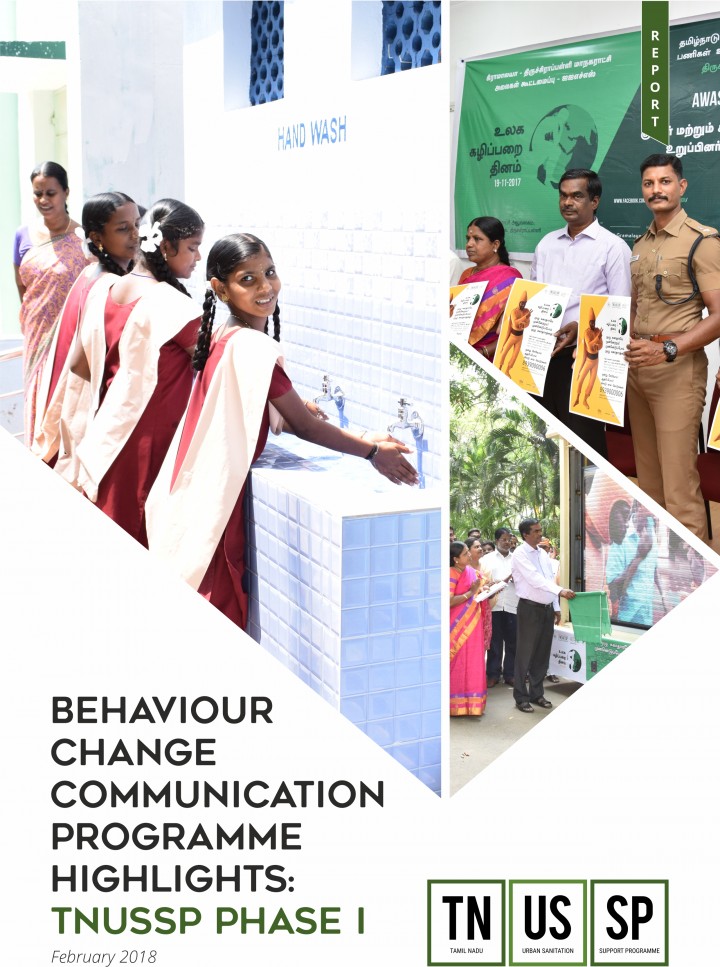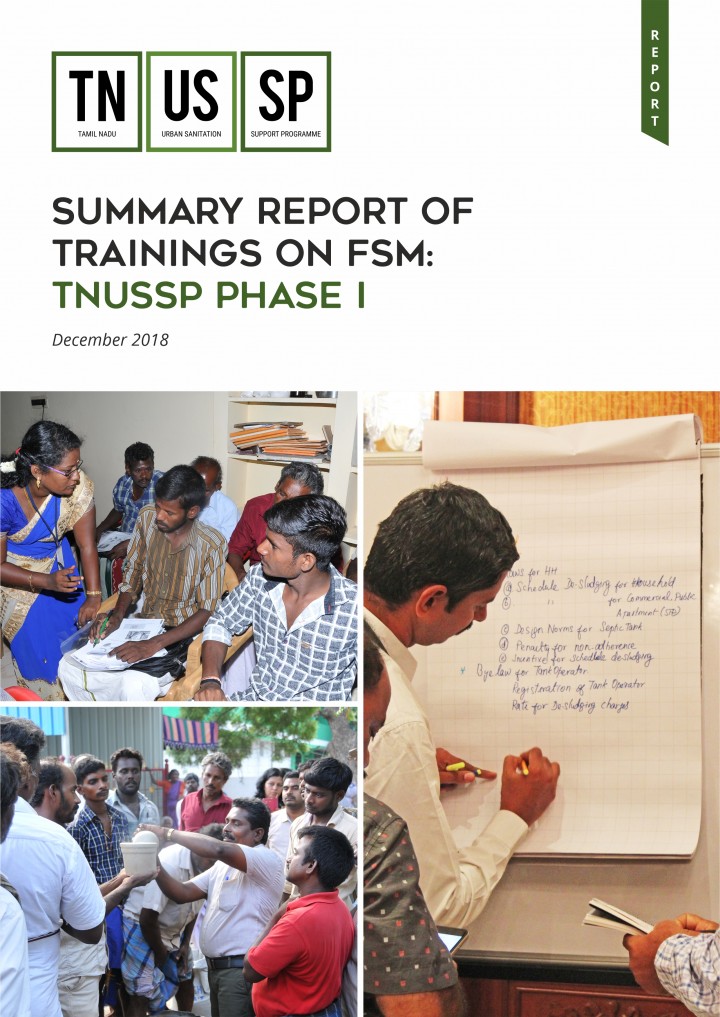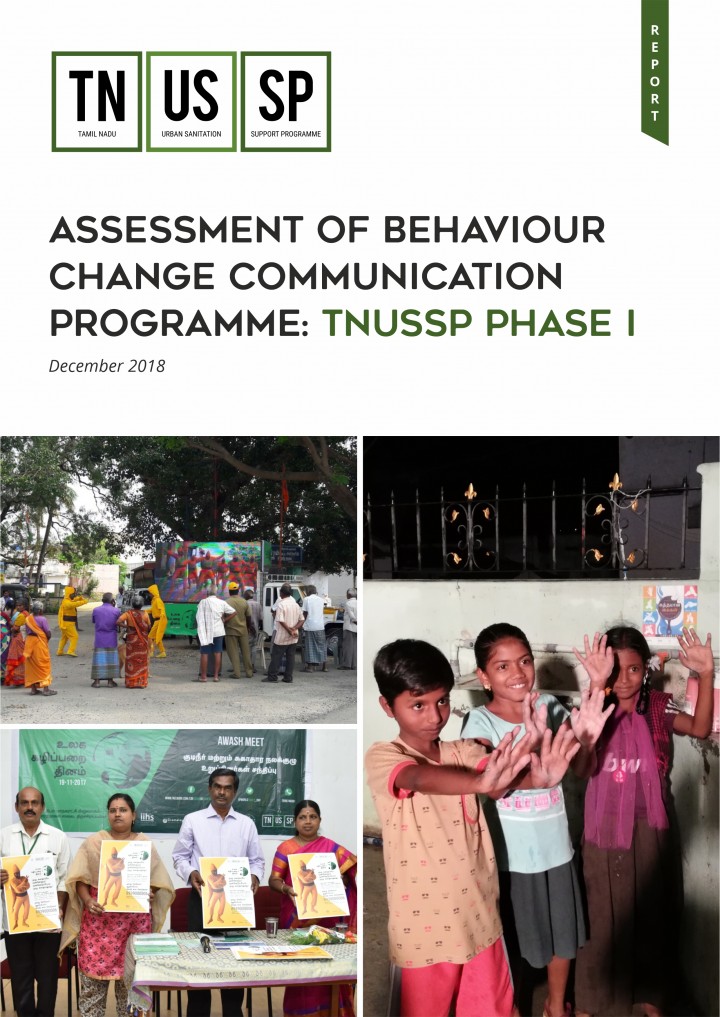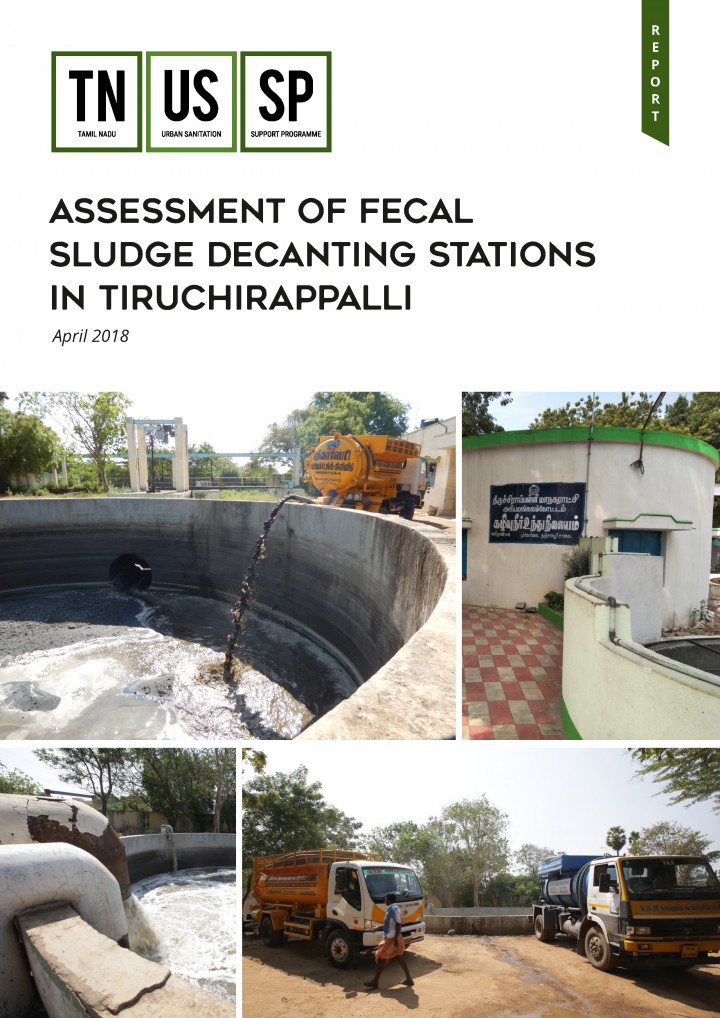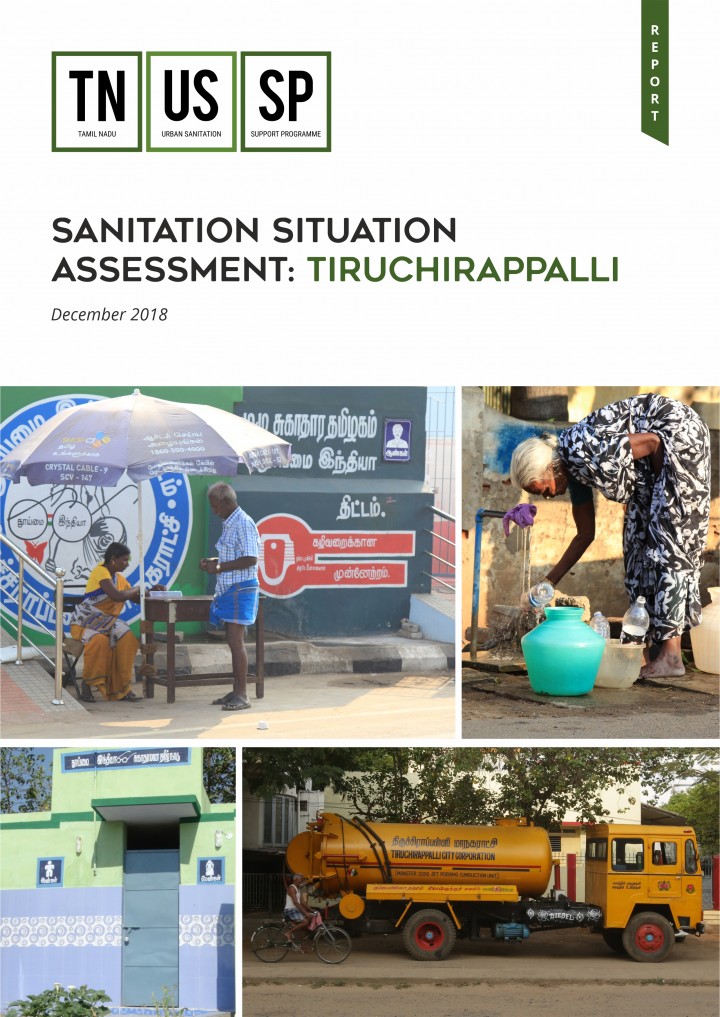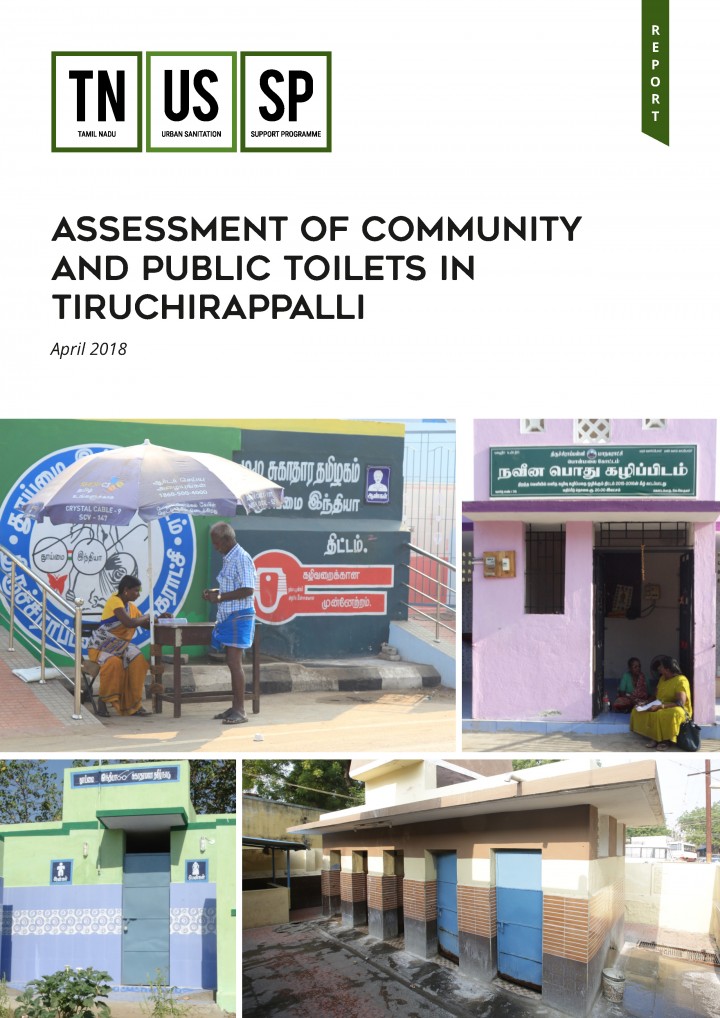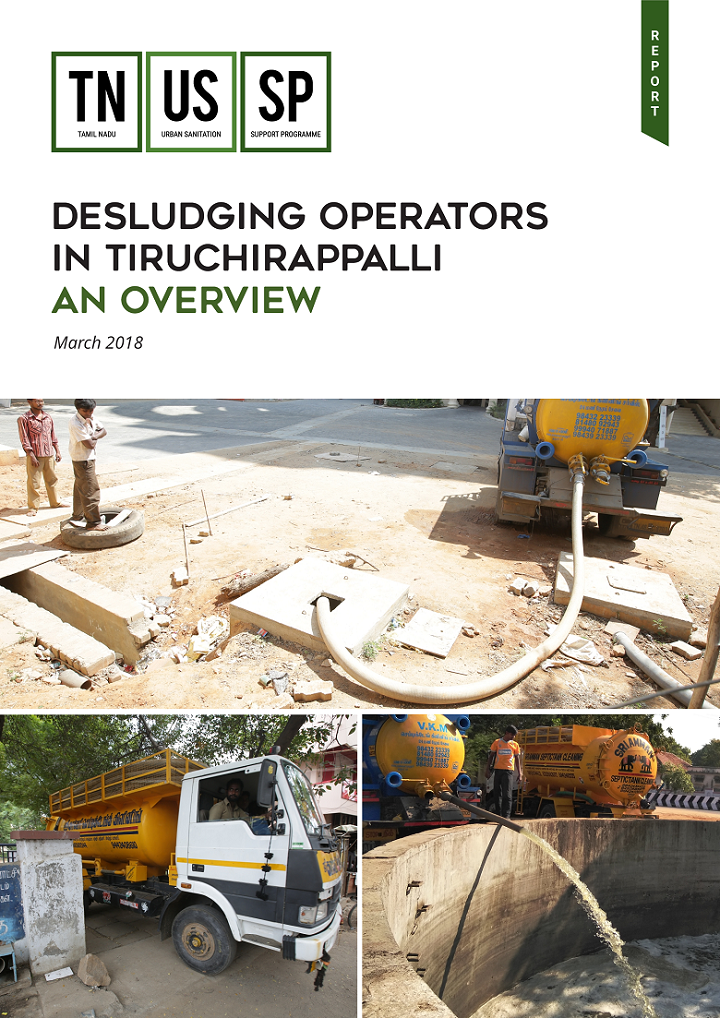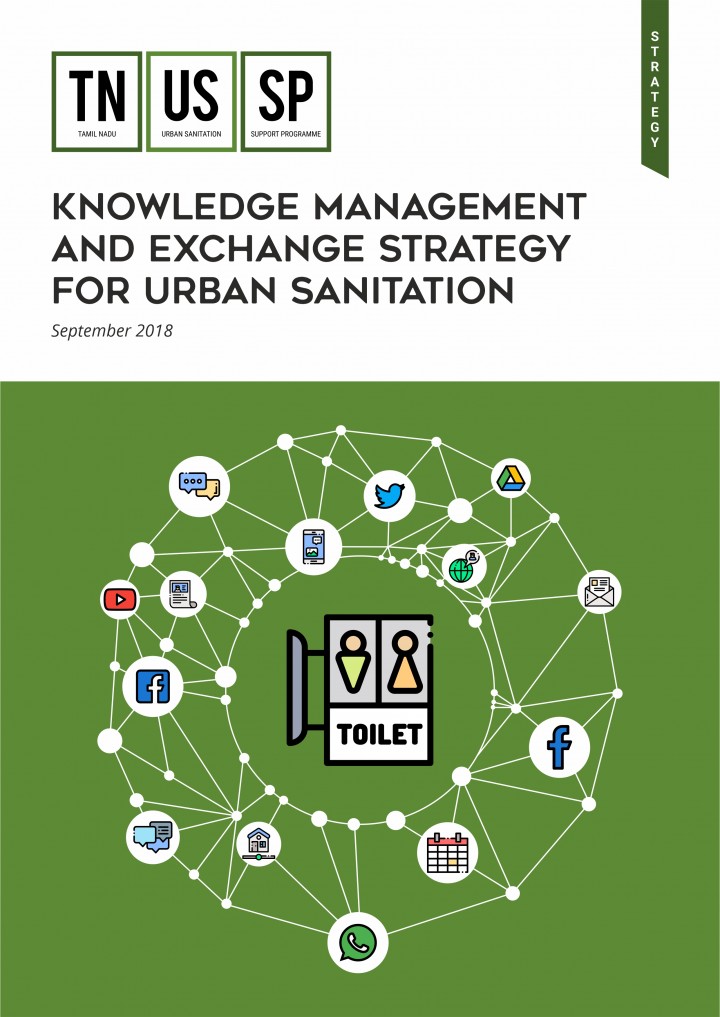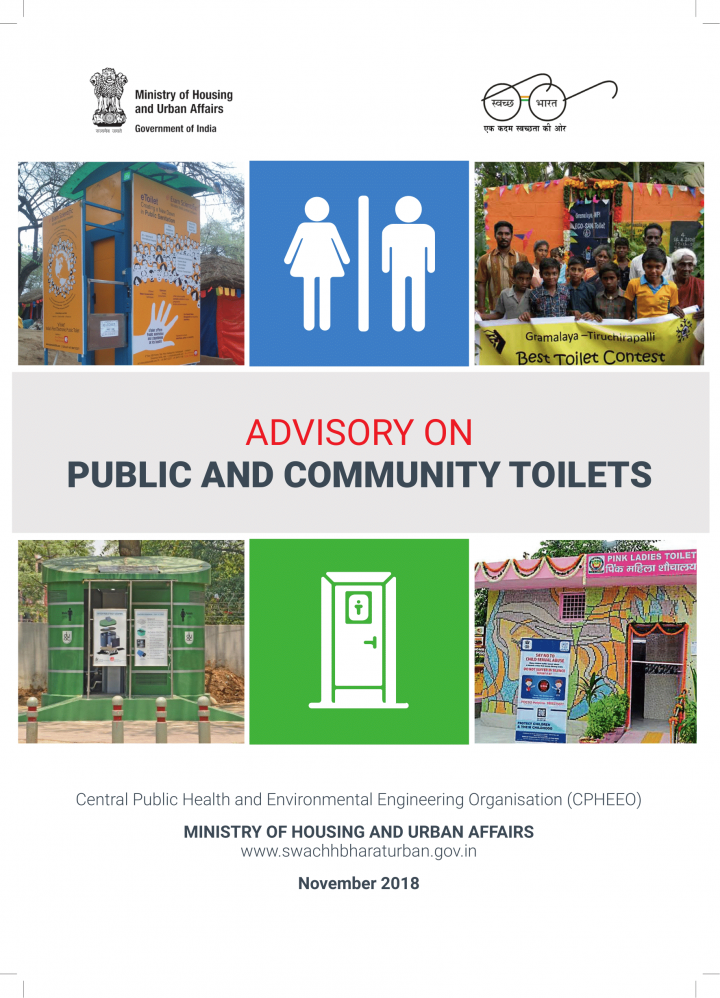Searching for information on Sanitation Workers?
The Sanitation Workers Knowledge + Learning Hub is the best source for all current news, trends, articles and updates on sanitation workers rights around the world.
To understand the vulnerability of the slums, all eleven slums in the town panchayats of Periyanaicken Palayam and Narasimhanaicken Palayam in Coimbatore were profiled using a range of indicators including location, migration, housing, water, sanitation, drainage, electricity, demography, and health seeking among others. This assessment helped categorise and prioritise slums in terms of their …
Improper disposal of menstrual waste is a noteworthy challenge when it comes to Menstrual Hygiene Management (MHM). Polymeric sanitary napkins, which have largely replaced cloth napkins, are made of material that is non-biodegradable, leading to the accumulation of used napkins in landfills. Accumulated menstrual waste can be hazardous because menstrual blood on napkins stagnates for a long time …
TNUSSP carried an assessment of Community Toilets and Public Toilets facilities in the two town panchayats Periyanaicken-Palayam and Narasimhanaicken-Palayam in Coimbatore district. The assessment aimed to profile the facilities in terms of their existing infrastructure, waste and waste management, and operation and maintenance practices. Further, toilet usage patterns were analysed and exit …
Safe collection and safe disposal of fecal sludge is a critical component of septage management in which desludging operators play a central role. In order to understand their work, consultations were conducted with desludging operators in the Periyanaicken Palayam and Narasimhanaicken Palayam town panchayats of Coimbatore district. These consultations aimed to understand the current desludging …
This is a Compendium of technology options for various components in the urban sanitation chain. This Compendium is contextual to the geographic and economic conditions for the state of Tamil Nadu and aims to provide the user with a broad range of innovative sanitation systems and technologies that can be implemented on the ground. This document is designed to act as a reference guide and …
On-site sanitation systems (OSS) remain the dominant household arrangement across the state of Tamil Nadu for urban sanitation. Given that these OSS are spread over different hydrogeological zones, factors such as aquifer systems, soil drainage characteristics, groundwater levels and flood hazard areas have a bearing on their suitability. A study was undertaken for the state of Tamil Nadu to …
It is important to insure that ‘sustainability’ is not confused or used interchangeable with ‘ODF+’. The tendency seen in the state is also to declare the community ODF and then quickly move on to a list of activities claimed to be part of ODF+. The acute need at this juncture is to stabilize and streamline the efforts made to declare the GP ODF. The focus is going to be to fill in the …
UNICEF and the Water Supply and Sanitation Department of Maharashtra developed a manual to appraise government and village functionaries about the technical aspects, legal provisions, service value chain of FSM, relevant technologies of containment, collection, transportation and methodology for planning, implementation and monitoring of FSM projects.
Spurred by the growing body of evidence linking poor menstrual hygiene facilities to school absenteeism, a collaborative study by the Ministry of Education, the Bhutan Nuns Foundation, the Religion and Health Project and the Ministry of Health in partnership with UNICEF was undertaken in 2017. The study undertook both qualitative and quantitative approaches to assess the current issues facing …
The study ‘Analysis of Menstrual Hygiene Practices in Nepal: The Role of WASH in Schools Programme for Girls Education’, was commissioned by UNICEF Nepal in collaboration with the Health Research and Social Development Forum (HERD) in 2016 to explore the socio-cultural practices related to menstruation, its management and consequences pertaining to girls’ education. The research and …
Since 2003 Nepal has been actively promoting the Community Led Total Sanitation approach and, from 2005 onwards; the School Led Total Sanitation approach, to promote Open Defecation Free (ODF) behaviours. The Government has put sanitation and hygiene at the forefront of its development agenda through the Nepal Country Plan for the International Year of Sanitation in 2008, the Sanitation and …
BCC is a key component of the TNUSSP and seeks to address the issue of behaviour change through a range of approaches, of which communication campaigns and activities, targeted at appropriate segments, is an important part. This document broadly outlines the communication campaign and activities conducted at Tiruchirappalli, PNP and NNP.
Capacity building initiatives are one of the key approaches followed by TNUSSP to effect changes across the entire sanitation chain. As part of this, orientation and training programmes were held for a range of stakeholders such as officers at the state level and of Urban Local Bodies, engineers, masons and desludging operators. This report presents details of the training/orientation programmes …
As part of the BCC component during Phase 1 of TNUSSP, a range of activities were undertaken in Tiruchirappalli and PNP – NNP. This included activities with general public, school children, sanitary workers and with Government officers of the ULBs. An assessment was carried out to understand the effectiveness of these activities, the findings of which are presented in this report.
The Sewage Treatment Plant at Tiruchirappalli has been used for co-treating fecal sludge by utilizing pumping stations as receiving/decanting stations. An assessment was carried out at the decanting stations in Tiruchirappalli with an objective to check the adequacy of existing facilities, identify areas of improvement and develop a methodology for feasibility assessment for converting pumping …
Tiruchirappalli has focused on urban sanitation over a long period of time. This report examines Trichy’s sanitation situation through a comprehensive understanding of existing sanitation arrangements, and highlights key deficiencies that can be addressed by a proposed action and investment plan.
Tiruchirappalli has been a pioneer in the community led management model of toilets. A rapid assessment survey was carried out across 400 community and public toilets in the city to assess their current state and understand the various models used to operate and maintain them. This report presents the findings from the rapid assessment survey.
Tiruchirappalli is a partially sewered city and a vast majority of the households are dependent on on-site sanitation systems. The city is serviced by nearly 30 private desludging operators and few urban local body owned trucks. In-depth interviews with desludging operators were conducted to understand their business, operational practices and challenges. This report presents the findings from …
In Tamil Nadu, currently, a range of behaviour deficits exist along the full cycle of sanitation at the stages of access, containment, emptying, transport, treatment and re-use/disposal. However, communication strategies in the sanitation sector have been largely limited to promoting hygiene behaviours such as handwashing or stopping open defecation by promoting the use of toilets. While these …
This factsheet is outlining current menstrual health and hygiene developments in Nepal. It also highlights the problems many girls and women encounter in accessing sanitary products.
In order to address this the production of sanitary pads by local women's cooperatives using sanitary pad machines, is supported by German Development Cooperation. These processes of facilitating the procurement …
In 2013, BMGF/DFID initiated a partnership to promote private sector participation in nonnetworked sanitation and improve capabilities of sanitation service authorities to govern these partnerships. Targeted cities were expected to have a clear mandate to provide urban services for all, including for the non-networked poor; and interest to develop and test models to engage the private sector in a …
There is a big shortfall between the amount of food we produce today and the amount needed to feed everyone in 2050. There will be nearly 10 billion people on Earth by 2050—about 3 billion more mouths to feed than there were in 2010. As incomes rise, people will increasingly consume more resource-intensive, animalbased foods. At the same time, we urgently need to cut greenhouse gas (GHG) …
The SDG 6.3.1 indicator report on “proportion of wastewater safely treated” describes the monitoring methodology developed and tested in consultation with wastewater experts, national sector experts and statistical authorities and harmonized with the International Recommendations for Water Statistics and established regional monitoring mechanisms.
The report also presents preliminary …
Sanitation has become a critical issue in the cities today. Ever growing population in the cities
has made it difficult to provide quality service to all its citizens. Swachh Bharat Mission (SBM),
the national flagship programme is dedicated to the improvement of sanitation condition in the
country. Ministry is extending technical and financial assistance to ULBs for improving …

